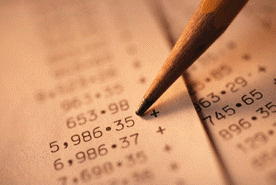- Sections covered: 2.5, 2.6, Exam 1
SelfQuiz
 |(2.5) | (2.6 -exact) | Integrating factor $\mu(x)$ or $\mu(y)$)|
|(2.5) | (2.6 -exact) | Integrating factor $\mu(x)$ or $\mu(y)$)|
- Suggested Homework:
Sec 2.6: 1-5, 7, 10, 12, 16, 18-21 Worksheet
- Sections covered: 3.3, 3.4 SelfQuiz
 |3.2|3.2b|3.3 | 3.4|
|3.2|3.2b|3.3 | 3.4|
- Suggested Homework:
Sec 3.3: 12-14, (you do not need to graph the solutions, but discuss the behavior of the solution as time increases.) 19 Sec 3.4: 1-3, 9, 11 (for 9 and 11, you do not need to graph the solutions, but note their behavior as time increases), 12, 18, 21, 26
- Sections covered: 3.7. damping demo Exam 2 SelfQuiz
 |3.7a| 3.7damped |
|3.7a| 3.7damped |
- Suggested Homework:
Sec 3.7: 1, 2, 8, 20, 21
- Sections covered: 4.1, 4.2, 4.3 double-spring SelfQuiz
 |
|4.1| 4.2 4.3|
|
|4.1| 4.2 4.3| 
- Suggested Homework:
Sec 4.1: 2, 6, 9, 16 Sec 4.2: 1, 3, 6, 9, 13, 14, 16, 20, 21, 22 Sec 4.3: 1-6, 8, 10-13
- Sections covered: 5.2, 5.3, SelfQuiz
 |5.2 |
|5.2 |
- Videos: |$y'-y=0$ | $y''+y=0$ | $x^2 y''+xy'=e^x-1$ | $y''-x y=0$ |
- Suggested Homework:
Sec 5.1: 2, 7, 10, 13, 15, 18, 19, 21, 22, 23 Sec 5.2: 1, 3, 7, 9, 10, 11, 12a Sec 5.3: 1, 8a, 10, 14, 15, 16
- Sections covered: 5.4, review, Exam 4 SelfQuiz
 |5.4|
|5.4|
- Suggested Homework:
Sec 5.4: 1, 3, 5, 9, 12, 15
- Sections covered: 3.7, 3.8 (by Laplace transform)
- Suggested Homework:
Sec 3.7: 3, 8, 20(a), 21(a) Sec 3.8: 1, 2, 6, 8, 11 Sec 3.8: 13, 14, 16 (use Laplace Transform)
- Sections covered: 6.6, Ch. 7, Review
- Suggested Homework:
Sec 6.6: 4, 5, 7-9, 12-15 Sect 7.1: 7-9